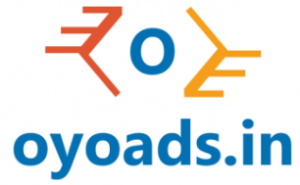MEGA Front End Developer Interview Questions & Answers – ALL IN ONE with In-Depth Explanations | Fresher to Experienced | Updated [September 2023]
Embark on an intensive journey through Front End Developer Interview Questions & Answers, meticulously curated to reflect the real-world challenges and topics front-end developers encounter during interviews. This course isn’t just about knowing the answers; it’s about understanding the core concepts, the reasoning behind them, and the application of these technologies in real-world scenarios.
What you’ll encounter:
-
Interview Questions on HTML & CSS Fundamentals:
-
Basics & Structure: Dive deep into the foundational blocks of the web, understanding the significance and application of various HTML tags, attributes, and the overall structure of web pages.
-
CSS Mastery: Decode the mysteries of the CSS Box Model, specificity, and the cascade. Understand how different properties interact and the intricacies of inheritance.
-
Modern Layouts: Flexbox and Grid have revolutionized web layouts. Encounter questions that test your ability to create complex designs, ensuring they’re both responsive and user-friendly.
-
Preprocessors & Accessibility: Questions around the power of Sass and LESS, and how they improve workflow. Additionally, gauge the importance of accessibility in today’s web, ensuring inclusivity for all users.
-
-
Interview Questions on JavaScript Core Concepts:
-
JS Foundations: Delve into questions that test your understanding of data types, variables, and the very nature of JavaScript as a dynamic language.
-
DOM & Interactivity: Encounter scenarios that require DOM manipulation, event handling, and creating reactive user experiences.
-
Asynchronous Operations: The web’s asynchronous nature is both a challenge and an opportunity. Dive into questions on Promises, Async/Await, and managing asynchronous data flow.
-
Functional & OOP Paradigms: Explore the dual nature of JavaScript, answering questions that test your expertise in both functional programming and object-oriented approaches.
-
-
Interview Questions on Frameworks & Libraries:
-
Framework Deep Dive: Navigate through in-depth questions on React, Vue, and Angular, testing not just your knowledge, but your practical experience with these tools.
-
Auxiliary Libraries: While frameworks dictate architecture, libraries like Lodash, Axios, and even jQuery play a crucial role in many applications. Be prepared for questions that probe your understanding and usage of these tools.
-
-
Interview Questions on Tools & Build Processes:
-
Development Ecosystem: Git isn’t just about commit and push. Dive into scenarios where understanding branching, merging, and conflict resolution is essential. Also, explore the nuances of package management with npm and yarn.
-
Building for the Web: Encounter questions that test your expertise in bundlers, transpilers, and build tools essential in today’s web ecosystem.
-
-
Interview Questions on Performance & Optimization:
-
Measuring Performance: Gauge your understanding of vital performance metrics and their significance in user experience.
-
Optimizing for Speed: Encounter real-world scenarios where optimizing images, assets, and code becomes crucial. Dive into the intricacies of the critical rendering path, understanding its impact on perceived performance.
-
-
Interview Questions on Web Accessibility and Cross-Browser Compatibility:
-
Inclusivity First: Delve deep into WCAG guidelines, understanding the philosophy and practical applications for a truly inclusive web.
-
Cross-Browser Challenges: In an era with multiple devices and browsers, questions will challenge your ability to ensure a consistent experience for all users, leveraging principles like progressive enhancement.
-
This course adopts a unique QUIZ-based format, designed to simulate the real-world interview scenarios you might face as a front-end developer. Instead of passively consuming content, you’ll be actively engaged, responding to a wide variety of questions, ranging from basic concepts to intricate problem-solving scenarios. This interactive approach ensures not only retention of knowledge but also gives you a clear insight into your strengths and areas that may require further review.
Who should take this course?
-
Beginners in Front-End Development: If you’re just starting your journey, this course will provide a roadmap, highlighting the critical areas you need to focus on. The quiz format will test and reinforce your newly acquired knowledge.
-
Experienced Developers Preparing for Interviews: Whether you’re changing jobs or aiming for a promotion, this course offers a comprehensive refresher, ensuring you’re well-prepared for even the most challenging interview questions.
-
Hiring Managers and Recruiters: Get a glimpse into effective questioning techniques and understand the depth and breadth of topics a front-end developer might be expected to know. This course can serve as a benchmark for evaluating potential candidates.
-
Self-Taught Developers: For those who have learned outside of traditional classrooms, this course provides an opportunity to validate and test your knowledge, ensuring you haven’t missed any vital areas of front-end development.
Why should you choose this course?
-
Comprehensive Coverage: This course isn’t just a random compilation of questions. It’s a curated collection, spanning a wide array of topics, ensuring you’re tested on every essential aspect of front-end development.
-
Real-World Relevance: Questions are designed not just to test knowledge but to reflect real-world scenarios and challenges you might face in your career as a front-end developer.
-
Feedback and Analysis: Post each quiz, you’ll receive feedback, helping you understand where you excelled and which areas might require further attention.
-
Engaging and Interactive: Unlike traditional courses that can be passive, the quiz format ensures you’re actively engaged, leading to better retention and understanding of topics.
We Updated Questions Regularly.
In the ever-evolving landscape of front-end development, staying updated is crucial. This course is not static. We understand the importance of keeping pace with the industry, and that’s why we commit to regularly updating our question bank. This ensures that you’re always learning the latest tools, techniques, and best practices, making this course a continually valuable resource throughout your career.
Examples of the types of questions you’ll encounter:
HTML & CSS:
-
Which HTML tag is used for inserting a line break?
-
How would you select all paragraphs (
) inside a
element using CSS?Explain the difference between block and inline display values in CSS.
How does the CSS property z-index work and what is it used for?
JavaScript:
-
Describe the difference between null and undefined in JavaScript.
-
How do arrow functions differ from traditional function expressions?
-
What is event delegation and why is it useful?
-
Explain the concept of hoisting in JavaScript.
Frameworks & Libraries:
-
In React, how does the virtual DOM benefit performance?
-
Describe the life cycle of a Vue component.
-
What are Angular services and when might you use them?
-
How does jQuery’s .ready() method ensure that the DOM is fully loaded?
Tools & Build Processes:
-
Explain the primary functions of Git’s rebase command.
-
What is the purpose of a package.json file in a Node.js project?
-
How does Webpack differ from task runners like Gulp or Grunt?
-
Describe the role of Babel in modern web development.
Performance & Optimization:
-
What is the Critical Rendering Path and why is it important for web performance?
-
How does lazy loading improve website performance and user experience?
-
Explain the importance of tree shaking in modern JavaScript frameworks.
-
Describe the differences between browser caching and service worker caching.
Web Accessibility and Cross-Browser Compatibility:
-
What is the primary purpose of the aria-hidden attribute in web accessibility?
-
How do semantic HTML elements contribute to better screen reader experience?
-
What is the significance of the declaration at the beginning of an HTML document?
-
How can you ensure that your website looks consistent across different browsers?
It’s a journey that refines your understanding, challenges your preconceptions, and prepares you for real-world challenges as a front-end developer.
FAQ:
-
What level of proficiency do I need in HTML & CSS to tackle this course?
-
Are the JavaScript questions focused only on ES6 or also on earlier versions?
-
Will the course cover the latest React/Vue/Angular versions and their features?
-
I see jQuery is mentioned. Is jQuery still relevant for modern front-end development?
-
Does the course cover topics on mobile-first and responsive design in the CSS section?
-
Yes, topics like responsive design, media queries, and mobile-first principles are part of the CSS section.
-
-
How deep does the course go into asynchronous programming in JavaScript?
-
The course covers core asynchronous concepts including callbacks, promises, and the async/await syntax.
-
-
Do the framework-based questions involve only theoretical concepts or also practical coding scenarios?
-
How current are the performance and optimization questions?
-
Does the course address the latest in web accessibility standards?
-
Yes, the course covers up-to-date web accessibility practices and standards, including WCAG guidelines.
-
-
Are the questions on cross-browser compatibility only about older browsers or current ones as well?
-
Is this course suitable for absolute beginners in front-end development?
-
While the course is comprehensive, absolute beginners might find some questions challenging. However, it’s a great way to identify learning areas.
-
-
How frequently are the questions updated?
-
Is there feedback provided after each quiz attempt?
-
Yes, post each quiz, you’ll receive feedback on your answers to understand areas of strength and improvement.
-
-
Can I retake the quizzes multiple times?
-
How long can I access the course once purchased?
-
The course provides lifetime access, allowing you to revisit the content anytime, even after completing the quizzes.
-
-
Does the course provide practical scenarios or just theoretical questions?
-
Do I need to install any software to take this course?
-
Are there any community or support groups associated with this course where I can discuss questions?
-
How do the course updates work? Will I need to pay extra for updated questions?
By the end, you won’t just be ready for the interview; you’ll be ready for the job.













![[100% Free]Learn Modern Javascript by Coding a Snake Game](https://oyoads.in/wp-content/uploads/2020/05/20200514_101649-324x235.jpg)






![[100% Free]Diet Express Health and Weight Loss Programme](https://oyoads.in/wp-content/uploads/2020/05/20200527_232210-218x150.jpg)



![[100% Free]Python Bootcamp 2020 Build 15 working Applications and Games (31.5 Hours)](https://oyoads.in/wp-content/uploads/2020/05/Python-Bootcamp-2020-Build-15-working-Applications-and-Games-1-100x70.jpg)

![[100% Free]Java Programming: Complete Beginner to Advanced](https://oyoads.in/wp-content/uploads/2020/05/IMG_20200519_054150_522-100x70.jpg)
